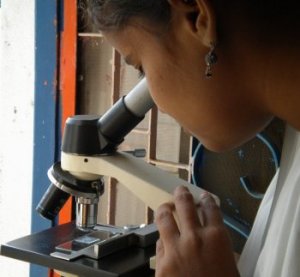|
Research
The
Institute's health-policy research is based on the conviction that an
understanding of the agricultural and socio-economic determinants of health
and nutrition is an essential prerequisite for effective community development.
Research has been carried out with the intention of providing government
policy makers the information to make more relevant decisions relating
to rural people.
Some
of our research projects, either completed or in progress, are as follows:
- Agricultural
and socio-economic determinants of intra-family food distribution in
families with young children.
- The
water needs of solely breast fed babies during the hot, dry season.
- The
economic and health consequences of drought: a longitudinal study in
rural South India.
- The
age of acquisition of intestinal parasites and the social and biological
determinants of intestinal parasitism.
- Women's
employment and its relationship to child health and welfare.
- Cervical
cancer in rural women: a study of the WHO-recommended down staging method
versus Pap smears using trained village women.
All
but the last of these have focused on families with young children. Nearly
all are longitudinal in nature. They have been funded by grants from:
- The
Ford Foundation
- The
United Nations University
- The
Imperial Chemical Industries Ltd through the University of Cambridge
- The
International Crops Research Institute for the Semi-Arid Tropics
- The
International Food Policy Research Institute
- OXFAM
(UK)
- The
Republic of Ireland.
- The
World Health Organization
- Unilever
Research
Research
on Health Care Delivery
The Institute has also conducted applied research
on ways of increasing access of rural villagers to cost-effective health
care. An OXFAM (UK) grant permitted IRHS to study the ability and effectiveness
of trained paramedics and community health workers to deliver primary
health care in village settings.

|

